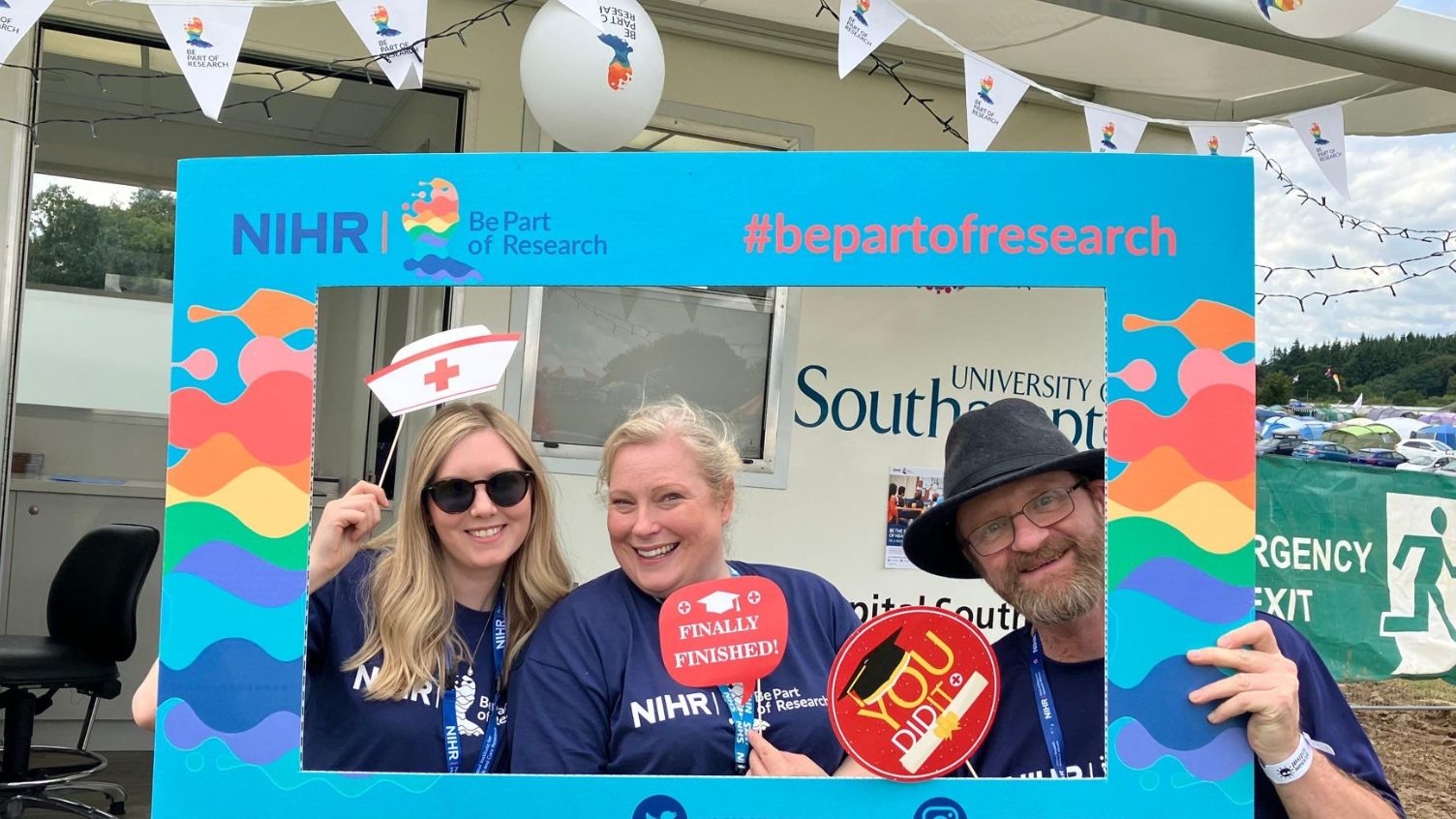Consultant Nurse on the changes research has made to people living with and beyond breast cancer
- 20 November 2023
- 4 min read
Claire Ryan is a Macmillan Consultant Nurse in Metastatic Breast Cancer at the Kent Oncology Centre, Maidstone and Tunbridge Wells NHS Trust. Claire has worked in the field of breast cancer, and cancer research for many years.
For the NIHR's Shape the Future campaign, Claire spoke to CRN Kent, Surrey and Sussex about the changes she has seen in research and the treatments she researched that have become embedded in clinical practice.
"I've been working in oncology for 36 years. I've been privileged in my career to design and set up two services. The first was the clinical trials unit at the Kent Oncology Centre in 1995, and the second was the metastatic breast cancer service in 2014.
Working alongside a Consultant Medical Oncologist, the clinical trials unit in its infancy had access to a small portfolio of clinical trials. Treatment plans for many patients have been considered "one size fits all". Science has evolved, as have personalised treatments, and therefore the processes and recruitment patterns have changed and adapted to the changing landscape of treatment within specialties. In the specialty of metastatic breast cancer, opportunities to access treatment as a participant in a clinical trial remains vitally important to the individual but also the community of both patient group and health care professionals.
I was the Lead Research Nurse for 17 years, and we went through a transition from working as a silo in the Kent Oncology Centre, through the National Cancer Research Network (NCRN), and then the NIHR, which saw lots of change and focus on research. Each tumour group became more complex and as Oncologists became more specialised in their tumour group, so did nurses. In the late 1990s and early 2000s there was a very different model of recruitment and portfolio management whereby historically, you could open one or two trials and recruit multiple patients to a trial. When the nuances changed in partnership with science, you'd have to open more trials just to balance the number of patients participating to meet the target of the protocol, and that of the NCRN and NIHR.
With an interest in breast oncology, I was also the lead for the breast oncology clinical trial portfolio. The team and department evolved, and so appointed more nurses, pharmacists, and research radiographers, and each team member started to specialise in an area of tumour-specific research and skills - a true multi-professional approach to research.
In my career as a research nurse, I have recruited over 4,000 patients into clinical trials. I feel very privileged that I was part of the journey bringing many of the treatments that were studied in the clinical trials I managed, which I now prescribe in my clinical practice. It's a humbling experience to be part of that development, and I cannot thank those patients enough who agreed to be part of those clinical trials.
I recruited patients to the PALOMA-2 trial. A first-line treatment for patients with ER+ HER 2 -ve metastatic breast cancer. IBRANCE as first-line treatment, in combination with letrozole, increased the progression-free survival when compared to letrozole alone. This has been a transformational drug in clinical practice, and only recently we've reached a point seven years down the line where the last two patients we put on the trial needed to switch treatment. This is truly amazing because years ago we would have never seen patients living well, for so long on one treatment before the cancer progresses and worsens. So many other trials that were in place at the Kent Oncology Centre have changed practice and are now embedded in my day-to-day prescribing.
It's very humbling to see this evolution and development of all treatments, but we must always, as said, be considerate of those patients who agree to participate in trials. Without them agreeing to participate, even with an understanding that it may not benefit them directly, treatment would not advance for others.
There are many skill sets a research nurse has and requires. Key is good communication, to be able to simplify complex information on treatment and protocol requirements. As you advance your clinical practice, you need to understand evidence-based practice and data. Our patients have access to so much information and may have a lot of knowledge about cancer research, and nurses need to be able to talk knowledgeably to patients about trials. It helps to understand research in day-to-day practice, for example, being able to identify eligible patients for trials. This offers choice to many.
As you can see, working in research has been very rewarding. My advice for nurses and any junior nurse particularly those who want to do any research work, however small, is to be curious, and always ask questions that might take you down the research path. You may find your own piece of research to pursue, to help your own practice. Find yourself a good mentor. Explore what part of research you want to be involved in. Speak up, and find the right people to speak to if you are interested in progressing your professional development within research or a specialty. Experience within research will enhance your clinical practice."
Visit the Shape the Future web page for information on how you can add research to your career.


